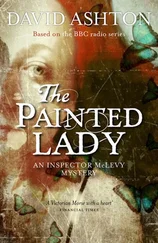William Maugham - The Painted Veil
Здесь есть возможность читать онлайн «William Maugham - The Painted Veil» весь текст электронной книги совершенно бесплатно (целиком полную версию без сокращений). В некоторых случаях можно слушать аудио, скачать через торрент в формате fb2 и присутствует краткое содержание. Жанр: Современная проза, на английском языке. Описание произведения, (предисловие) а так же отзывы посетителей доступны на портале библиотеки ЛибКат.
- Название:The Painted Veil
- Автор:
- Жанр:
- Год:неизвестен
- ISBN:нет данных
- Рейтинг книги:4 / 5. Голосов: 3
-
Избранное:Добавить в избранное
- Отзывы:
-
Ваша оценка:
- 80
- 1
- 2
- 3
- 4
- 5
The Painted Veil: краткое содержание, описание и аннотация
Предлагаем к чтению аннотацию, описание, краткое содержание или предисловие (зависит от того, что написал сам автор книги «The Painted Veil»). Если вы не нашли необходимую информацию о книге — напишите в комментариях, мы постараемся отыскать её.
The Painted Veil — читать онлайн бесплатно полную книгу (весь текст) целиком
Ниже представлен текст книги, разбитый по страницам. Система сохранения места последней прочитанной страницы, позволяет с удобством читать онлайн бесплатно книгу «The Painted Veil», без необходимости каждый раз заново искать на чём Вы остановились. Поставьте закладку, и сможете в любой момент перейти на страницу, на которой закончили чтение.
Интервал:
Закладка:
VIII
BUT there was a quality of courage in Mrs. Garstin which in itself was admirable. She let no one in her immediate circle, which to her was the world, see how mortified she was by the frustration of her hopes. She made no change in her style of living. By careful management she was able to give as showy dinners as she had done before, and she met her friends with the same bright gaiety which she had so long cultivated. She had a hard and facile fund of chit-chat which in the society she moved in passed for conversation. She was a useful guest among persons to whom small talk did not come easily, for she was never at a loss with a new topic and could be trusted immediately to break an awkward silence with a suitable observation.
It was unlikely now that Bernard Garstin would ever be made a judge of the High Court, but he might still hope for a County Court judgeship or at the worst an appointment in the Colonies. Meanwhile she had the satisfaction of seeing him appointed Recorder of a Welsh town. But it was on her daughters that she set her hopes. By arranging good marriages for them she expected to make up for all the disappointments of her career. There were two, Kitty and Doris. Doris gave no sign of good looks, her nose was too long and her figure was lumpy; so that Mrs. Garstin could hope no more for her than that she should marry a young man who was well off in a suitable profession.
But Kitty was a beauty. She gave promise of being so when she was still a child, for she had large, dark eyes, liquid and vivacious, brown, curling hair in which there was a reddish tint, exquisite teeth and a lovely skin. Her features would never be very good, for her chin was too square and her nose, though not so long as Doris's, too big. Her beauty depended a good deal on her youth, and Mrs. Garstin realized that she must marry in the first flush of her maidenhood. When she came out she was dazzling: her skin was still her greatest beauty, but her eyes with their long lashes were so starry and yet so melting that it gave you a catch at the heart to look into them. She had a charming gaiety and the desire to please. Mrs. Garstin bestowed upon her all the affection, a harsh, competent, calculating affection, of which she was capable; she dreamed ambitious dreams; it was not a good marriage she aimed at for her daughter, but a brilliant one.
Kitty had been brought up with the knowledge that she was going to be a beautiful woman and she more than suspected her mother's ambition. It accorded with her own desires. She was launched upon the world and Mrs Garstin performed prodigies in getting herself invited to dances where her daughter might meet eligible men. Kitty was a success. She was amusing as well as beautiful, and very soon she had a dozen men in love with her. But none was suitable, and Kitty, charming and friendly with all, took care to commit herself with none. The drawing-room in South Kensington was filled on Sunday afternoons with amorous youth, but Mrs. Garstin observed, with a grim smile of approval, that it needed no effort on her part to keep them at a distance from Kitty. Kitty was prepared to flirt with them, and it diverted her to play one off against the other, but when they proposed to her, as none failed to do, she refused them with tact but decision.
Her first season passed without the perfect suitor presenting himself, and the second also; but she was young and could afford to wait. Mrs. Garstin told her friends that she thought it a pity for a girl to marry till she was twenty-one. But a third year passed and then a fourth. Two or three of her old admirers proposed again, but they were still penniless; one or two boys younger than herself proposed; a retired Indian Civilian, a K.C.I.E., did the same: he was fifty-three. Kitty still danced a great deal, she went to Wimbledon and Lord's, to Ascot and Henley, she was thoroughly enjoying herself; but still no one whose position and income were satisfactory asked her to marry him. Mrs. Garstin began to grow uneasy. She noticed that Kitty was beginning to attract men of forty and over. She reminded her that she would not be any longer so pretty in a year or two and that young girls were coming out all the time. Mrs Garstin did not mince her words in the domestic circle and she warned her daughter tartly that she would miss her market. Kitty shrugged her shoulders. She thought herself as pretty as ever, prettier perhaps, for she had learnt how to dress in the last four years, and she had plenty of time. If she wanted to marry just to be married there were a dozen boys who would jump at the chance. Surely the right man would come along sooner or later. But Mrs. Garstin judged the situation more shrewdly: with anger in her heart for the beautiful daughter who had missed her chances she set her standard a little lower. She turned back to the professional class at which she had sneered in her pride and looked about for a young lawyer or a business man whose future inspired her with confidence.
Kitty reached the age of twenty-five and was still unmarried. Mrs. Garstin was exasperated and she did not hesitate often to give Kitty a piece of her very unpleasant mind. She asked her how much longer she expected her father to support her. He had spent sums he could ill afford in order to give her a chance and she had not taken it. It never struck Mrs. Garstin that perhaps her own hard affability had frightened the men, sons of wealthy fathers or heirs to a title, whose visits she had too cordially encouraged. She put down Kitty's failure to stupidity. Then Doris came out. She had a long nose still, and a poor figure, and she danced badly. In her first season she became engaged to Geoffrey Dennison. He was the only son of a prosperous surgeon who had been given a baronetcy during the war. Geoffrey would inherit a title - it is not very grand to be a medical baronet, but a title, thank God, is still a title - and a very comfortable fortune.
Kitty in a panic married Walter Fane.
IX
SHE had known him but a little while and had never taken much notice of him. She had no idea when or where they had first met till after their engagement he told her that it was at a dance to which some friends had brought him. She certainly paid no attention to him then and if she danced with him it was because she was good-natured and was glad to dance with any one who asked her. She didn't know him from Adam when a day or two later at another dance he came up and spoke to her. Then she she remarked that he was at every dance she went to.
"You know, I've danced with you at least a dozen times now and you must tell me your name," she said to him at last in her laughing way.
He was obviously taken aback.
"Do you mean to say you don't know it? I was introduced to you."
"Oh, but people always mumble. I shouldn't be at all surprised if you hadn't the ghost of an idea what mine was."
He smiled at her. His face was grave and a trifle stern, but his smile was very sweet.
"Of course I know it." He was silent for a moment or two. "Have you no curiosity?" he asked then.
"As much as most women."
"It didn't occur to you to ask somebody or other what my name was?"
She was faintly amused; she wondered why he thought it could in the least interest her; but she liked to please, so she looked at him with that dazzling smile of hers and her beautiful eyes, dewy ponds under forest trees, held an enchanting kindness.
"Well, what is it?"
"Walter Fane."
She did not know why he came to dances, he did not dance very well, and he seemed to know few people. She had a passing thought that he was in love with her: but she dismissed it with a shrug of the shoulders: she had known girls who thought every man they met was in love with them and had always found them absurd. But she gave Walter Fane just a little more of her attention. He certainly did not behave like any of the other youths who had been in love with her. Most of them told her so frankly and wanted to kiss her: a good many did. But Walter Fane never talked of her and very little of himself. He was rather silent; she did not mind that because she had plenty to say and it pleased her to see him laugh when she made a facetious* remark; but when he talked it was not stupidly. He was evidently shy. It appeared that he lived in the East and was home on leave.
Читать дальшеИнтервал:
Закладка:
Похожие книги на «The Painted Veil»
Представляем Вашему вниманию похожие книги на «The Painted Veil» списком для выбора. Мы отобрали схожую по названию и смыслу литературу в надежде предоставить читателям больше вариантов отыскать новые, интересные, ещё непрочитанные произведения.
Обсуждение, отзывы о книге «The Painted Veil» и просто собственные мнения читателей. Оставьте ваши комментарии, напишите, что Вы думаете о произведении, его смысле или главных героях. Укажите что конкретно понравилось, а что нет, и почему Вы так считаете.












